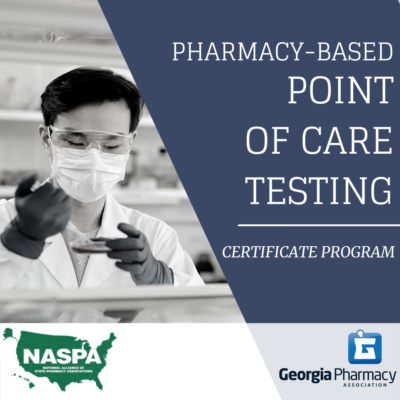Eyebrow-raising beauty trend, possible huge Covid breakthrough, paying addicts to recover, and more
09 Sep 2022
Posted by Andrew Kantor
Identical, potentially big, Covid breakthroughs
Researchers have produced antibodies that neutralize all known types of Covid-19. What’s crazy is that it was done twice — by two separate research teams, using different methods, published in different respected peer-reviewed journals, days apart.
Where: Boston Children’s Hospital. Molecular biologists there used genetically engineered mice to produce “a wide repertoire of humanized antibodies” including one lineage (called SP1-77) that “demonstrated extremely wide activity, neutralizing Alpha, Beta, Gamma, Delta, and all prior and current Omicron strains.”
How: By binding to the SARS-CoV-2 spike protein in a different manner than other antibodies, and in a way that “prevents the virus from fusing its outer membrane with the membrane of the target cell.”
Where: Israel’s Tel Aviv University. Microbiologists there isolated antibodies from the immune system of recovered Covid-19 patients. Called TAU-1109 and TAU-2310, together they’re almost 100% effective “in neutralizing all known strains of the virus.”
How: By binding to the spike protein in a different region than other antibodies — one “that for some reason does not undergo many mutations.”
Help patients choose and use point-of-care testing
Have you seen how many point-of-care tests there are these days? When a customer asks, “Can you help me?” be ready to say, “You bet!”
Earn 20 hours of CPE with the NASPA Pharmacy-based Point-of-Care Testing Certificate Program program for pharmacists and pharmacy technicians.
It’s 16 hours of home study and 4 hours of live training, and it covers tests for flu, strep, HIV, hep C, and coronaviruses (but the knowledge applies to lots more).
The live training is at GPhA’s World Headquarters in Sandy Springs on Sunday, October 2.
Get more info and sign up today at GPhA.org/pointofcare. And look, there’s even a cool ad with a guy doing, you know, science stuff:
Try to look on the bright side of Covid
“Psychological distress before COVID-19 infection increases risk of long Covid”. That’s what Harvard researchers found in a study of more than 54,000 people in April 2020, more than 3,000 of whom contracted the disease.
[T]he researchers determined that distress before Covid-19 infection, including depression, anxiety, worry, perceived stress, and loneliness, was associated with a 32%–46% increased risk of long Covid.
Are your devices stylish enough?
If you sell compression gloves or knee braces, here’s something to be aware of: Customers care more than you might think about how they look, feel, and even smell.
That’s what North Carolina State University researchers found by analyzing more than 2,000 reviews of assistive devices over three years.
“Aesthetics of assistive devices are often not taken into account despite the fact that research shows one reason for abandonment is that users feel embarrassed or stigmatized by their devices.”
Color is pretty important because, just as with Band-Aids, the old ‘pale peach’ doesn’t work for a lot of folks. If they can’t hide it, they at least want it to look stylish. As for feel and smell: Rough and scratchy is out, as is sealing the product before the plastic has time to “off-gas.”
Give a penny, earn a buck
The idea of the anti-kickback statute is that pharmaceutical manufacturers can’t pay patients’ out-of-pocket expenses for the drugs they sell. (That would be an unfair incentive, especially when Medicare pays most of the ticket price.)
The big loophole: They can give to charities that pay those costs. Even better (for them, not us) is that those donations aren’t reported.
Still, researchers from Harvard, Northwestern, and USC crunched the numbers to see if it was actually worth drug makers’ while to give to charities. Oh yes, yes it was.
We found that donations by the leading manufacturer of drugs for each condition were often likely to be profitable, even if relatively few patients were induced to use the manufacturer’s drugs as a result.
Perhaps the most egregious example is Takeda’s $300,000-per-year Gattex, which treats short bowel syndrome:
In 2010, a charity for short bowel syndrome did not exist, but the authors note that within ten days of Gattex’s approval by the FDA in December 2012, a fund for short bowel syndrome appeared.
Beauty care trend of the month
If you’re still selling the same ol’ skin creams, you need to keep up. The hot new beauty trend out of Korea is — wait for it — beauty products containing salmon testicle DNA (listed on the package as “salmon pdrn*”).
The claim, from a study of some sort, is that “salmon sperm was associated with increased skin elasticity and stronger collagen levels—both of which are crucial for anti-aging skin.”
[S]almon testicle DNA has been found in many luxury K-beauty products, including the KAHI Wrinkle Free Multi Balm. […] As the name implies, you glide the balm across your face for a dewy, luminous look.
* Short for polydeoxyribonucleotides
BPH to talk Covid, monkeypox
Georgia’s Board of Public Health will be meeting this coming Tuesday, September 13 from 1:00– 3:00 pm. As usual, it’s open to the public in person or via Zoom. The topics:
- Epidemiology updates on Covid-19 and Monkeypox
- Monkeypox vaccination updates
- The DPH strategic plan
The Long(ish) Read: Rewards for Recovery edition
If you play computer games, you know that even small rewards (+1 gloves!) give that dopamine rush and keep you playing. The same is true with addiction recovery.
Even addicts who want to recover can have a lot of trouble — that’s why “one day at a time” is a thing. And…
More than 150 studies over 30 years have shown rewards work better than counseling alone for addictions including cocaine, alcohol, tobacco and, when used alongside medications, opioids.
One reason it works: Many of the people who are prone to addiction’s small, immediate rewards are also helped when those rewards — cash, gifts, even candy — are for *recovery.



